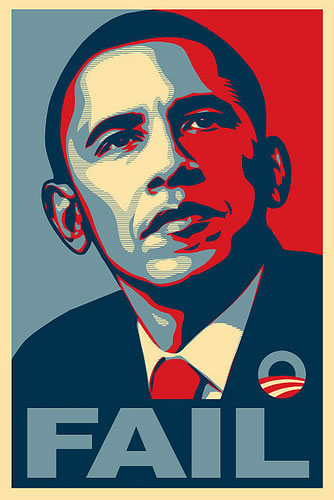I have a crazy idea: let’s save millions of dollars by not spending money to build broadband networks where they already exist. The insanity of so-called “broadband stimulus” projects has been covered quite nicely here at BigGovernment by Seton Motley, but my good friend Dave Williams of the newly-formed Taxpayers’ Protection Alliance wrote about a part of this debate that hasn’t been covered enough: loan guarantees given out by the Rural Utilities Service, a division of the U.S. Department of Agriculture.
With a budget deficit that is as large on its own as the entire federal budget of 1998, the folks in Congress who’d like to avoid a crippling debt crisis (those crazy kids!) are looking for ways to trim the fat. Luckily for legislators there is an area of “USDA prime” waste they can carve out: the U.S. Department of Agriculture’s desperate dash for taxpayer cash in the form of superfluous subsidies for rural broadband efforts.
USDA’s Rural Utilities Service (RUS) is an outdated agency whose roots go all the way back to FDR’s New Deal-era Rural Electrification Administration. Originally meant to help bring electricity to farmers in remote areas, its mission was expanded in 1949 to include telephone service and, half a century later, Internet service. Ostensibly, its goal is to subsidize the construction of broadband networks in sparsely-populated areas that do not have them.
But in its ham-fisted attempt to bring high-speed Internet service to areas where there is none, RUS has consistently given money to organizations which build over existing private broadband networks. A 2005 report from the USDA Inspector General found that “RUS has not maintained its focus on rural communities without preexisting service.” The same report determined that “in one of the more highly publicized cases, RUS issued loans to a company providing broadband access to affluent suburban communities a few miles outside of Houston, Texas.”
This should come as no surprise, since RUS had previously come under criticism for providing taxpayer-backed loans to rural electric cooperatives whose lines of business – such as propane sales – seemed to stray far from the basic, limited mission of helping deliver power to underserved places.
Some observers joke that the latest loans are given based on the number of times an applicant shoehorns the word “rural” into its documents rather than the business case (or lack thereof) that is made. I’m waiting to hear back about my application on behalf of “Andrew’s Rural Broadband Service for Rural Citizens Living in Rural Areas (Rural Rural Rural). Well-intentioned or not, there’s no rational justification for RUS to lend money for rural broadband development to companies that serve wealthy suburbs. We simply cannot afford such excesses if we are to stand any chance of creating a sustainable fiscal future.
Unfortunately, warnings from Congress fell on deaf ears. A subsequent USDA Inspector General Report issued in 2009 found little improvement in the agency’s strange habit of loaning money for projects that build over existing Internet service, rather than bringing it to those who don’t have any.
President Obama has also ignored this tarnished record of gross mismanagement. In fact, he doubled down and put RUS in charge of doling out $2.4 billion in so-called “broadband stimulus” money. Those funds have once again gone to applicants who are building over existing private networks, instead of building out networks into unserved areas.
As Members of the new Congress have begun turning off that “stimulus” spigot through the continuing resolution process, bureaucrats inside RUS are now looking to spend carry-over funds that still exist from the monstrous 2008 Farm Bill. They’re gearing up to rush out as much as $700 million in ill-advised loans before the portion of the pot that is “unobligated” is returned to the Treasury to help pay down part of our $1.65 trillion deficit. Because Washington insiders see no greater sin on Earth than failing to spend every dime of their budget from Congress, agency officials are doing their best to keep shoveling the cash into unworthy pockets before it “disappears” to the (much worthier) cause of deficit reduction.
So, while the vast majority of Americans are demanding that government cut spending and live within its means, the people who run the Rural Utilities Service are doing everything they can to issue nearly a billion dollars in government-guaranteed loans that will almost certainly be used to duplicate the existence of privately-built networks.
For lawmakers looking to save money and help end the culture of foolish lending practices, removing the RUS’s carryover spending authority is about as clear an example as they are likely to get. The question is, will they take it?

COMMENTS
Please let us know if you're having issues with commenting.